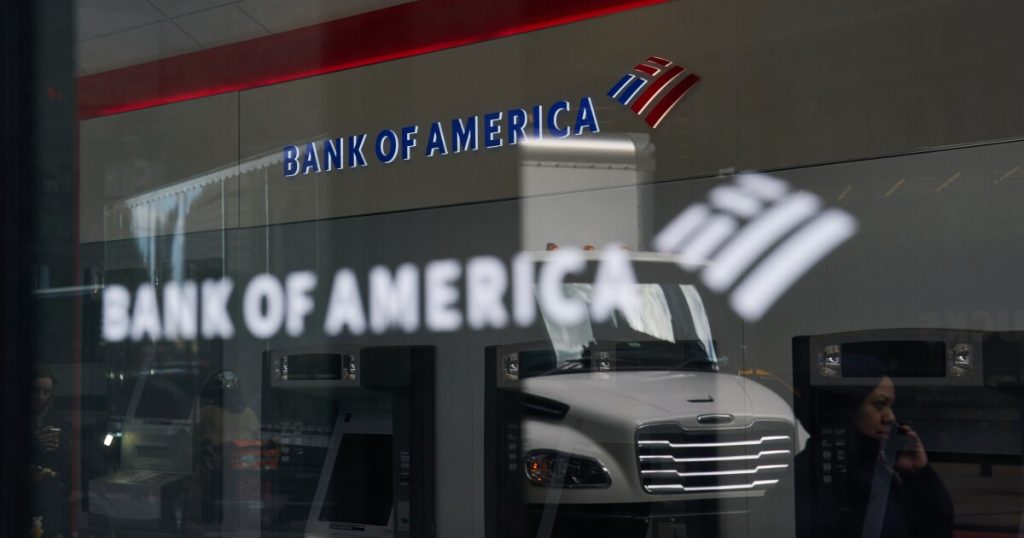- Key insight: Bank of America avoided prosecution by self-reporting and fixing compliance failures.
- Expert quote: “Self-disclosure is key to receiving the most generous benefits the Criminal Division can offer.” — Matthew R. Galeotti, acting assistant attorney general.
- Forward look: Prosecutors may prioritize prosecuting individuals over lengthy corporate cases.
Overview bullets generated by AI with editorial review
The Department of Justice
The DOJ said it had resolved its investigation into the alleged market manipulation schemes as part of a policy change under the Trump administration, implemented in May, that encourages voluntary self disclosure of white-collar crimes.
A spokesperson for
The end of an 11-year saga
The alleged market manipulation at
Sidney Lebental, a former senior trader and supervisor at
Tyler Forbes, a former junior trader for
From October 2014 through February 2021, the two collectively executed 717 instances of spoofing. Spoofing is a fraudulent practice where a trader enters a large, fully displayed order that they do not intend to execute to manipulate market perception.
The traders employed a two-step strategy:
- A trader first placed a genuine order to buy or sell a Treasury security or related futures contract, frequently using “iceberg” orders that displayed to the market only a small portion of the total size.
- The trader fully displayed to the market a spoof order on the opposite side.
These large, misleading orders injected false information into the marketplace, artificially creating the appearance of market depth or an imbalance in supply or demand, fooling other market participants into executing the trader’s genuine order at a favorable price.
FINRA filings describe one instance where Lebental fully advertised to the market an order to sell $50 million par value of the 30-year bond, dramatically increasing the displayed liquidity by 2,600%, from $2 million to $52 million.
After receiving executions on the genuine order, the traders rapidly canceled the spoof orders.
Lebental canceled all 523 spoof orders within three seconds of entry, and 370 of them within one second. The overwhelming majority (447 of 523) received no executions at all.
DOJ wants quicker resolution to white-collar crimes
The DOJ is encouraging corporations to disclose white-collar crimes by showing that self-reporting companies receive “the most generous benefits” the DOJ has to offer, according to
The department has revised its Corporate Enforcement and Voluntary Self-Disclosure Policy, or CEP, with the stated aim of improving efficiency and certainty in white-collar crime enforcement.
The previous approach, according to Galeotti, led to “burdensome, years-long investigations” that deterred companies from cooperation.
The goal of the new policy is to clarify the benefits for companies that self-report, allowing the department to devote resources to prosecuting “individual wrongdoers and the most egregious criminal schemes,” he said.
Under the revised policy, companies that voluntarily self-disclose criminal conduct, fully cooperate, timely and appropriately remediate the matter and have no aggravating circumstances receive a declination of prosecution.
Thursday marked the second time the DOJ has declined to prosecute a case under its modified self-disclosure policy. In August, the DOJ
Lessons for compliance: Failures and fixes
The
From at least October 2014 through September 2022, the company failed to maintain a supervisory system reasonably designed to detect spoofing in U.S. Treasury markets.
FINRA also highlighted a number of deficiencies in its investigation:
- Prior to November 2015, BofA Securities conducted no surveillance for spoofing in these markets.
- Until mid-2019, the company’s sole spoofing surveillance focused on trading algorithms, rendering it ineffective against the 717 instances of manual spoofing carried out by human traders.
- Until at least December 2020, surveillance missed orders traders entered directly into up to eight external trading systems, limiting reviews only to orders routed through its proprietary system.
- The firm did not supervise for potential cross-product spoofing in the U.S. Treasury markets until October 2022.
In resolving the matter, the DOJ said
- The company fired the junior trader, Forbes.
- The company conducted an internal review of the trading activity of all U.S. Treasuries desk traders.
- The firm invested significantly in and improved its surveillance programs, enhancing its systems to capture potential manual spoofing and orders placed outside its proprietary routing system.
- The company implemented external testing of its internal controls.
- The firm also implemented cross-product spoofing surveillance in October 2022 and enhanced its anti-manipulation policies and training.
These highlight specific improvements that investment banks can bring to their own systems.
The case also serves as a reminder to banks: Report white-collar crimes to the DOJ quickly and thoroughly to avoid prosecution.

